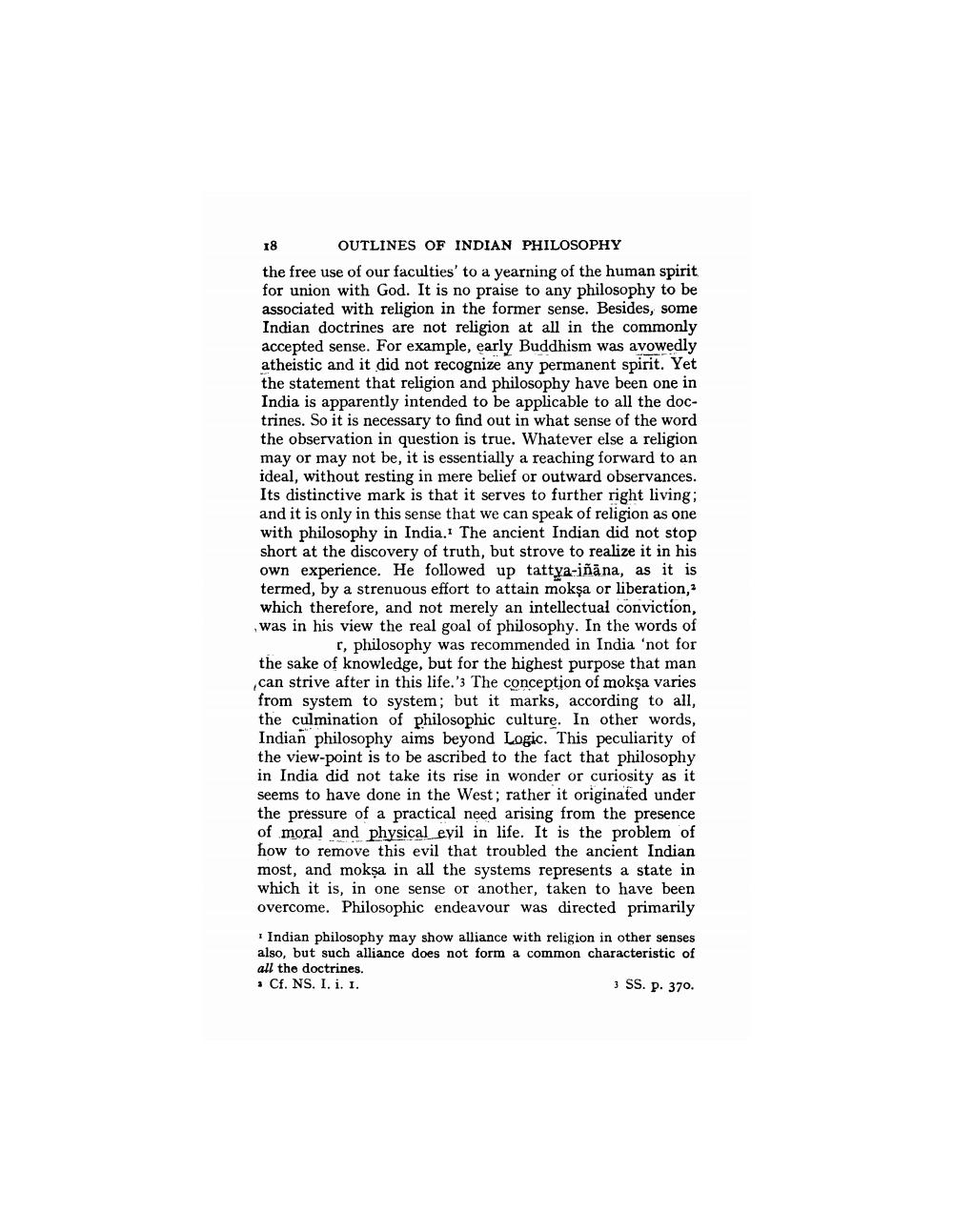________________
18 OUTLINES OF INDIAN PHILOSOPHY the free use of our faculties' to a yearning of the human spirit for union with God. It is no praise to any philosophy to be associated with religion in the former sense. Besides, some Indian doctrines are not religion at all in the commonly accepted sense. For example, early Buddhism was avowedly atheistic and it did not recognize any permanent spirit. Yet the statement that religion and philosophy have been one in India is apparently intended to be applicable to all the doctrines. So it is necessary to find out in what sense of the word the observation in question is true. Whatever else a religion may or may not be, it is essentially a reaching forward to an ideal, without resting in mere belief or outward observances. Its distinctive mark is that it serves to further right living: and it is only in this sense that we can speak of religion as one with philosophy in India. The ancient Indian did not stop short at the discovery of truth, but strove to realize it in his own experience. He followed up tattya-iñāna, as it is termed, by a strenuous effort to attain mokşa or liberation, which therefore, and not merely an intellectual conviction, was in his view the real goal of philosophy. In the words of
r, philosophy was recommended in India 'not for the sake of knowledge, but for the highest purpose that man can strive after in this life.'3 The conception of moksa varies from system to system; but it marks, according to all, the culmination of philosophic culture. In other words, Indian philosophy aims beyond Logic. This peculiarity of the view-point is to be ascribed to the fact that philosophy in India did not take its rise in wonder or curiosity as it seems to have done in the West, rather it originated under the pressure of a practical need arising from the presence of moral and physical eyil in life. It is the problem of how to remove this evil that troubled the ancient Indian most, and moksa in all the systems represents a state in which it is, in one sense or another, taken to have been overcome. Philosophic endeavour was directed primarily
Indian philosophy may show alliance with religion in other senses also, but such alliance does not form a common characteristic of all the doctrines. · Cf. NS. I. i. 1.
3 SS. P. 370.




